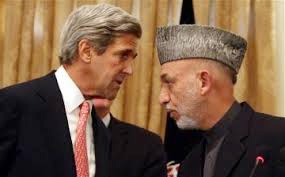Newspaper Article 30/11/2020
Covid-19 is making a resurgent come back in Pakistan. The toll it’s taking, in terms of rising infections and growing fatalities by the day, is no secret by any means. Yet, it has taken a serious toll in Pakistan: in our collective journey from sense and sensibility to reason’s decline to senility and insensitivity. Before presenting my central argument, it is important to revisit the figures of renascent Covid-19. Between November1-23, 2020, the average number of positive cases reported per day is approximately 1867 and over 644 people have died.
If intuition and gut feeling may serve as a yardstick, take a cursory survey and map the number of infected people, in your immediate and extended social network, in the past one month. A comparison with first wave may suggest that the numbers of cases are on the ascent than the first wave.
It’s hard to account for all the variables that are turning the tide of Covid-19 against us. However, the basic most important factors that drove us, during the first wave, to take, imperfect yet, collective and synergetic action, need examination to avert rising risk from pandemic, once again. The unfamiliarity with the lethality of a threat often springs societies and states into rapid action. The familiarity with it often debilitates enduring attitude with which to resiliently mitigate it. This dilemma in our lax response, to Covid’s second-wave, remains true.
Neither imposing blanket lockdown—in the long-term—is a durable redemption, or throwing away precautionary measures as a towel before the pandemic. Swaying between these extremities will either economically strangulate us or wreak havoc on lives of people across the country. The utmost priority of nearly everyone, in the beginning, remained aversion of Covid-19 from becoming pandemic in Pakistan. The gravity of this realisation has, overtime, dwindled. The extent of which appears, vividly, reflected in actions of public and politicians across the divide.
Some of illustrious conduct from a group of Pakistan’s polity is dichotomous to their invocations during the first-wave. The opposition then, for valid reasons, right, centre and left criticised the government in resorting to ease of lockdown restrictions. After the recent decision by cabinet and a decision by Islamabad High Court to discourage holding of mass public gatherings; it is important that such reckless resort be averted before a public health disaster unfolds. The unbridled holding of political rallies by opposition, and government deserves, only, a scorn. The mass gatherings across Pakistan are exponential super-spreaders: rallies; protests; mass congregational prayers, are only catalysts in unleashing flood gates on public health.
Pakistan, not just government, is faced by a severe public health crisis. The precarious circumstances need to be countered by reclaiming a sagacious and apolitical outlook towards Covid-19; not by politicising it as Covid-deniers or by becoming turncoat alarmists. Covid-19 has demonstrated its lethality; it doesn’t discriminate people in binaries of us versus them, or friends versus foes. It, only, waits to infect those oscillating between probabilities and variables determining exposure towards it. Pakistan’s public health sector (alike the first wave), is once again at the same crossroads: and of threat of being over-run by the pandemic.
The capacity of public health hospitals remains confronted by multifarious challenges: haphazard compliance of SOPs in Covid-19 wards; elusive ambition of free or cost-effective testing; lack of Personal Protective Equipment (PPEs), quality bedding and life-saving equipment, such as, ventilators and oxygen. In claiming premature victory over the pandemic, Pakistan lost sight of the most important interventions to prevent pandemic from consuming avoidable loss of lives.
Personally, I, and several fellow colleagues have advised the government on undertaking holistic measures to manage the pandemic: by building up a durable and futuristic public health sector. The time for preventive vaccine is still some months away: till then Covid-19 need not be gambled with. When this pandemic subsides; it will not be time to claim triumph, once again, but to build and sustain a durable and adaptive public health system. The time to act, however, is today—not when another pandemic or health disaster confronts us.

